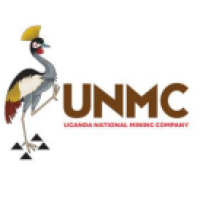- Support the implementation, maintenance, and improvement of health and safety systems to manage risks and ensure compliance with organizational standards and regulatory requirements.
As Part Of Our Team You Will:
- Assess risk assessments and hazard identification to mitigate safety risks effectively.
- Monitor and assess health and safety systems to ensure compliance with legal and company standards.
- Deliver training and guidance to employees on health and safety policies, procedures, and risk management.
- Maintain safety management systems and related documentation in alignment with standard methodology.
- Evaluate incidents and provide corrective actions to prevent recurrence.
- Execute audits and inspections to monitor workplace safety and determine areas for improvement.
- Collaborate with cross-functional teams to implement safety into all operational activities.
- Monitor and report safety performance metrics to senior management, highlighting trends and risks.
- Contribute to regular safety meetings and risk reviews to ensure continuous improvement.
- Liaise with regulatory bodies and external partners on compliance and safety requirements.
Your Training, Skills & Experience Checklist:
Formal Qualification (including Professional Registrations):
- Bachelor’s degree in health and safety or engineering.
- National Examination Board of Occupational Safety and Health (NEBOSH) General Certification in Occupational Health and Safety.
Additional Knowledge:
- Thorough knowledge of relevant local Health and Safety legislative requirements.
- Sound understanding of Safety Management systems.
- Sound knowledge and experience of risk management and loss prevention processes.
Experience:
- Minimum of 3 – 5 years’ working experience as a Health and Safety Officer.
Problem Solving Ability:
- Completes concrete procedural tasks.
- Follows procedural steps to complete work.
- Uses practical judgment to overcome problems, or requests assistance.
- Sees alternatives based on trial and error.
- Improves working methods using day-to-day experiences, procedures, observations of pattern of events, and trial and error.
Technical Skills:
- Strong analytical and problem-solving skills.
- Strong communication (written and verbal) and interpersonal skills.
- Strong computer literacy skills – MS Office (Word, Excel, PowerPoint and Outlook).
- Sound conflict management skills.
- Sound information monitoring and management skills.
- Sound planning, organising and prioritising skills.
Social Process Skills:
- Self-awareness: Understand own behaviors and is aware of the impact on others and adapt their own behavior where necessary in order to get a productive outcome for the wider team.
- Team process: Able to be an effective team member by listening, clarifying tasks, receiving and providing feedback, able to be an effective team leader by establishing and maintaining a positive and productive work environment through listening, dealing with different points of view, giving and receiving feedback.
- Collaboration: Build positive working relationships with a diverse range of people across disciplines, as required by their manager.











